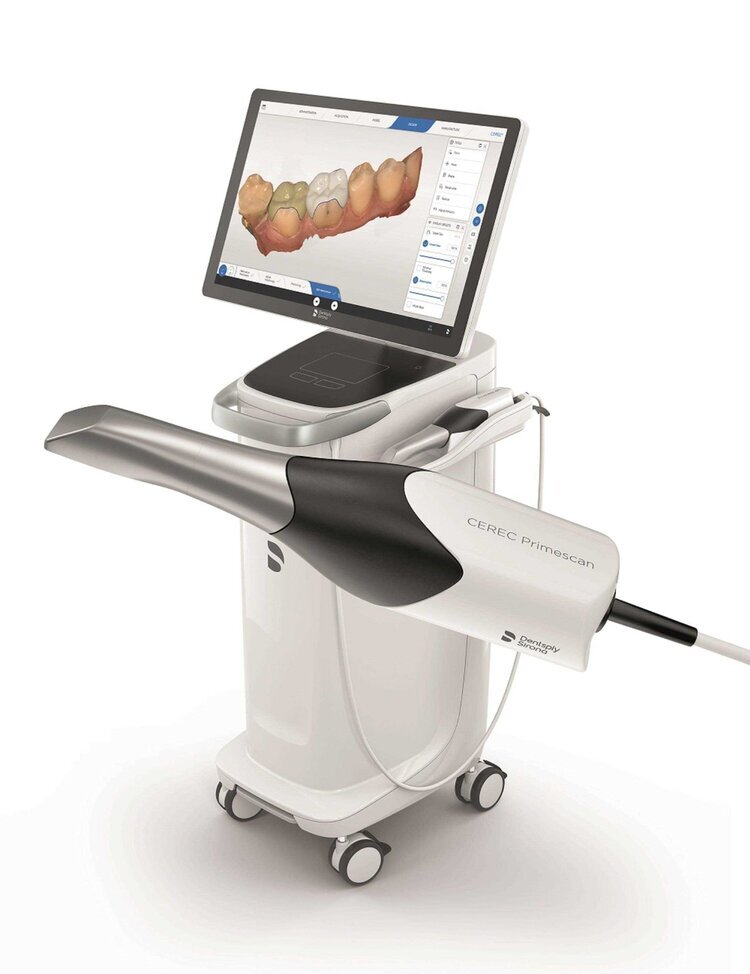Starting Out in the Digital Dental World
When should I Invest in an intraoral scanning technology? this is the most common question I am asked when I speak at conferences on digital dentistry. If you’ve spent any time practicing dentistry in the last ten years, you have probably been wondering about this yourself. When should you invest in an intraoral scanner? Unfortunately, my answer to that question is you should have invested five years ago. Don’t worry if you don’t like that answer, because, in the end, you are asking the wrong question.
Digital dentistry and impressions began in the early 1970s and have rapidly evolved since then to encompass all areas of a practice’s everyday workflow. There are piles of data showing that intraoral scans are more accurate, easier to use, and are more efficient. They are also great internal marketing tools and easily pay for themselves. The question you should be asking yourself is which scanner should you choose for your practice?
Nothing will replace the value of doing your research on intraoral scanners. However, there are multiple brands in the marketplace right now, and it is easy to get overwhelmed and confused by all the information coming at you. I’ll give you the benefit of my own experiences. I hope this helps you decide to get started with this remarkable technology, as I have seen firsthand the excellent benefits that come with this investment.
I currently have a CEREC® Primescan and a Medit i500 scanner at my practice (Medit just released the i700 last month). Both work great but are very different. Of these two scanners, which should you choose? There are two additional questions you should ask yourself to help you decide.
#1 DO YOU WANT TO START SMALL & SIMPLE WITH INTRAORAL SCANNING?
If you are the kind of dentist that likes to dip your foot in the water instead of jumping right in, then the Medit i500 scanner is an excellent choice for you. The Medit i500 scanner is very easy to use and has a simple user interface for you to navigate with minimal or no training. This scanner is also a great first scanner as it is very affordable when compared to alternative scanners. It has an MSRP of around $18,000, making it easier for you to incorporate it into your budget. The Medit i500 also has an online portal to share scan images with your patient or a specialist.
The CEREC® Primescan, on the other hand, comes with a steeper learning curve than the Medit i500. It offers improved scanning that can handle steep angles, hard-to-reach areas, and shiny surfaces. These added scanning features also lend themselves to a scanner that requires more training and time to get comfortable using it in your practice. The CEREC® Primescan is currently considered one of the best scanners available in its class. If you want to get started at the top right away and are comfortable paying around $30,000 more than you would for the Medit i500, then the CEREC® Primescan would be a great option for you.
#2 WHAT DO YOU WANT FROM YOUR SCANNER?
Do you want a scanner that provides an open .STL file for you to do what you want with, and that’s it? If so, then the Medit i500 is a great choice. It has an open scanner file output that you can use to view files and send cases to your dental laboratory.
Do you want to do the most with your scanner? The CEREC® Primescan offers the most applications of any other scanner. With this scanner, you can do aligner therapy, design implant surgical guides, send regular cases directly to your lab, and mill some of your own crowns. You can add a mill to your practice that will allow you to mill single-unit crowns and surgical guides. You can also connect it to a CBCT with implant scanning software, use it with SureSmile for aligner therapy, and send cases directly to your lab using the Connect Case Center.
Are you still unsure about which scanner to choose? Ultimately, you may find that you’re like me and use both scanners. The Medit i500 is easy to bring from room to room, and I use it when sending right to MicroDental Lab for my larger implant guide cases. I also use my CEREC® Primescan for everyday single implant planning and guides that I mill in-house at my practice.
The most important thing is to know yourself and your practice. This knowledge will help you pick the best scanner for you, whether that be the Medit i500, the CEREC® Primescan, or one of the many other options out there on the market. No matter what you decide, you can be absolutely sure that it is time for you to invest and finally join the rest of us on the digital dental journey.
About the Author:
Dr. Douglas Smail, DDS is an oral and maxillofacial surgeon located in New York State. He has over 27 years of experience in the dental industry. Dr. Smail uses digital dentistry every day in his work and is a proud advocate for incorporating the latest technological innovations into every practice. You can find Dr. Smail on his practice’s website, or through his LinkedIn page.





